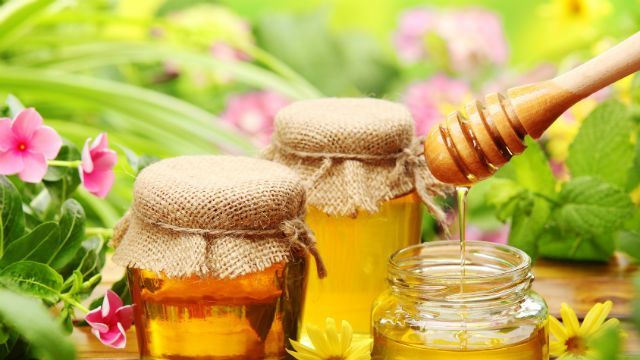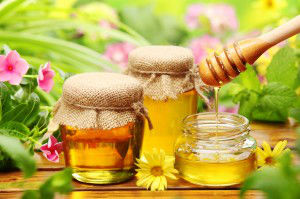
You already know that candy and soda and other sugar-filled foods are bad for your teeth, so how can something as sweet as honey be beneficial?
Not all honey has cavity and plaque-fighting abilities, but research conducted at the University of Waikato in New Zealand found that Manuka honey has significant antibacterial properties. The honey not only stops the growth of bacteria found in dental plaque, it also has the ability to reduce the amount of acid that’s produced.
Honey has been used for centuries to not only sweeten foods, but to treat all sorts of diseases and infections because it produces hydrogen peroxide as a byproduct. Bacteria are inhibited from producing dextrin, which acts like glue and allows them to stick to the teeth, helping to prevent plaque from forming because the bacteria don’t have anything to stick to.
One of the reasons Manuka honey may be so effective is that it’s made by bees that feed off the flowers of the Manuka bush, a medicinal plant native to New Zealand. Although all honey contains varying degrees of hydrogen peroxide, Manuka honey offers healing properties that go even beyond this. In fact, a study out of India found that Manuka honey was just as effective as a chemical mouthwash, and even better than xylitol, for reducing plaque levels.
The honey has such powerful antibacterial properties that clinical trials have determined that it can effectively eradicate more than 250 clinical strains of bacteria, including many that are highly resistant.
Unfortunately, there is also a downside of honey, in that most of it sold in the U.S. is highly processed or refined, which means it won’t offer the same health benefits as raw, high quality Manuka honey, and it can actually promote disease and harm your teeth as well as your overall health. As it contains almost four grams of fructose in just one teaspoon, it can worsen pre-existing insulin resistance and cause other health issues.
As long as you stay under 25 grams of fructose each day, eating raw Manuka honey can promote better health. Be extra careful if you have signs of elevated insulin levels such as being overweight, having high blood pressure and/or cholesterol, diabetes, or excess fat in the abdominal area.
While Manuka honey certainly may be beneficial for mouth and teeth health, leading natural healthy expert, Dr. Joseph Mercola, advises that consuming more fermented vegetables may be even more effective. He revealed that he struggled with dental plaque for years, despite eating a healthy diet, brushing, flossing, and regular trips to the dental hygienist, but after adding fermented veggies, his plaque was reduced by over 50 percent.
 Almost any vegetable can be fermented, although local, organic produce is best – and to get the most health benefits, eat a variety of fermented vegetables.
Almost any vegetable can be fermented, although local, organic produce is best – and to get the most health benefits, eat a variety of fermented vegetables.
The bottom line is there is almost always a healthier, and often more effective alternative to chemically-made products and it may be well worth your time to discover if they can help you to achieve optimal health.
-The Alternative Daily

